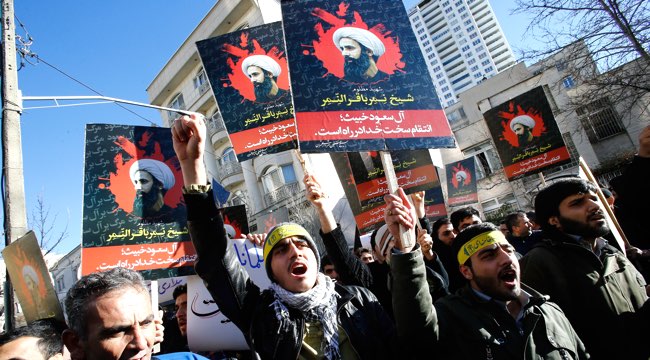
Saudi Arabia rang in 2016 by executing 47 people, including prominent Shiite cleric Nimr al-Nimr, who was charged not only for his statements against the government but also for shooting at police during protests. The extraordinary bloodbath, which was spread across 12 Saudi cities, appeared to be largely symbolic and timed for maximum impact.
Saudi Arabia’s regional rival, Iran, quickly stepped up to condemn the execution of Nimr, who held the nation’s support. The two governments issued back-and-forth statements with no middle ground in sight. A number of media outlets described the executions as “worthy of ISIS,” and Saturday evening saw a throng of Iranian protesters overtake the Saudi embassy in Tehran with fists and Molotov cocktails.
The Saudi government wasn’t happy to see their violence greeted with violence, and Foreign Minister Adel al-Jubeir announced an even more drastic action. Saudi Arabia has cut diplomatic ties with Iran following Saturday’s protests. All Iranian diplomats have 48 hours to leave Saudi Arabia. Meanwhile, Iran’s supreme leader, Ayatollah Ala Khamenei, called the Saudi executions a “political error” and promises there will be divine retribution:
“The unjustly spilled blood of this oppressed martyr will no doubt soon show its effect and divine vengeance will befall Saudi politicians … God will not forgive … it will haunt the politicians of this regime.”
Back in the United States, Barack Obama is watching the situation during his Hawaiian family vacation. The Obama administration expresses hope that the Saudis will uphold human rights standards, but as CNN analyst Bobby Ghosh states, “This is Saudi Arabia saying, ‘The gloves are off.”
